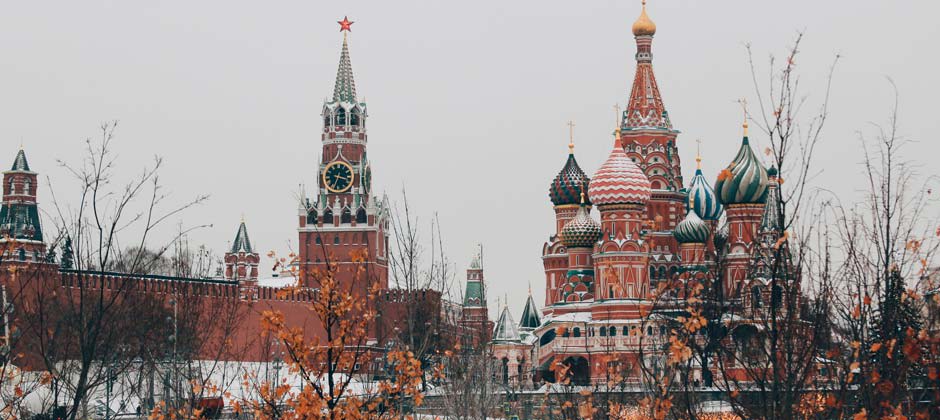Study in Russia: Education in Russia
Higher education in Russia is similar in structure to the central European system, with a few key differences. The system is divided into four main sections – primary, secondary, higher and postgraduate education. 776 higher education institutions across 82 regions in Russia accept international students.

International Student in Russia?
Here's what the international sanctions against Russia mean for your studies.
Higher education in Russia is similar in structure to the central European system, with a few key differences. The system is divided into four main sections – primary, secondary, higher and postgraduate education. 776 higher education institutions across 82 regions in Russia accept international students, and choosing Russia as your study abroad destination will give you a wide variety of choices in finding the right higher education for you!
It takes 11 years to complete a secondary education in Russia before students can enter the higher education system. After successfully finishing their ninth year of schooling, students will receive a certificate of Basic General Education with the option of pursuing two more years of secondary education. After finishing the two additional years, a Certificate of Complete Secondary Education will then be awarded. This certificate serves as proof that the student is eligible to pursue their higher education.
Three kinds of higher education institutions in Russia
- Universities offer a broad range of programs on all levels.
- Academies place a larger emphasis on research and practical skills, normally dedicated to specific subject areas such as art, architecture or science.
- Institutes are independent branches of universities or academies which offer professional educational courses.
The higher education system in Russia is renowned for its achievements and emphasis in the field of science and technology. Many of the courses offered at state-funded institutions are focused around the sciences, but a large variety of humanities and social sciences programs are offered as well!
In recent years, private higher education institutions have emerged to complement these traditional Russian institutions, offering programs in other fields such as economics, business and law.
Degree Structures in the Russian Education System
While education in Russia is largely based on the Bologna principles, education in Russia structures degrees slightly differently than other countries in Europe.
- Upon completion of secondary education, students can pursue either a Bachelor’s or Specialist’s degree, both qualifying students to later pursue a master’s degree. Bachelor’s degrees are given after four years of full-time study at a university. Specialist degrees are awarded after a minimum of five years of study and are more focused on practical education in a student’s chosen field. Both qualifications require students to successfully defend a thesis and pass examinations. This degree is conferred in all fields except medicine, where the first stage of education lasts for six years.
- Master’s degrees are awarded after two years of study with one year dedicated to research which includes practice and preparation for a thesis defense.
- Students who possess a master’s degree are eligible to pursue their PhD studies. Postgraduate education is divided into two parts in Russia, and two degrees are required to confirm students’ status as a scientist. Postgraduate studies can only be pursued at a university or scientific institute. After successful completion of the first part of their postgraduate education, students are awarded a Candidate of Sciences degree.
- The final Doctoral degree is obtained after an additional 2-4 years of study in postgraduate education. This certification then leads to a Doctorate degree. As there is a 10-year gap between both degrees, the final Doctorate qualifications are often awarded to Candidates of Science after they’re well into their careers in academia.
Neither Bachelor’s or Master’s degrees existed in the Soviet system and were introduced to conform the Russian education system with international standards in accordance with the Bologna Process.
In addition, an MBA in Russia is becoming more and more popular among international students, since Russia is considered a financial superpower in the energy and gas sectors.
This change has helped Russian higher education qualifications receive recognition and acceptance abroad, which was a previous problem for international alumni, and explains the rising number of international students choosing Russia as their study abroad destination!
The Russian Academic Year
The academic year in Russia is split into two semesters. The first runs from September until January, and the second from February to June. This schedule is mandatory for all universities.
Overview of Russia
Russia is the biggest country in the world by a significant margin. Take a look at what it's like to study abroad in Russia and more.
Student Visas
Do you need a visa to study in Russia? Student visas in Russia are required for students from most foreign countries. Learn more about the student visa process, and what you need to enter the country.
Housing & Living Costs
Student accommodation and living costs in for international students in Russia can greatly vary, depending on where you're staying. Learn more about different student housing options and how much everything costs.
Tuition Fees & Scholarships
For some students, Russian university tuition will seem a lot less expensive than their home countries. Find out more about the range of tuition fees in Russia.
Language & Culture
When you think about the size of Russia, it comes as no surprise that the country has a wide variety of languages and cultures. Take a look.
Application Process
All countries have specific admissions requirements for students to gain acceptance into a university. Learn more about the ins and outs of admission to programs in Russia, and what you need to apply.
Programs
Ready to look at programs in Russia? Use our search engine to find and compare top programs in Russia today!

Author
The Keystone Team is comprised of experienced educators and advisors dedicated to providing valuable resources and advice to students all over the world.